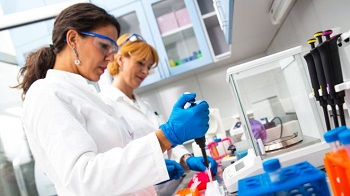Medicine has always been personal to some extent – a doctor looks for the best way to help the patient sitting in front of them.
But with advances in technology, it is becoming possible to use the most unique of characteristics – our genomes – to tailor treatments for individuals.
Genomes are made up of a complete set of our DNA, including all of our genes, and are the instruction manual on how to build and maintain the 37 trillion cells in our bodies.
Any two people share more than 99% of their DNA. It’s the remaining less than 1% that makes us unique, and can affect the severity of a disease and effectiveness of treatments.
Looking at these small differences can also help us understand the best way to treat a patient for a range of diseases – from cancer and heart disease to depression.
Cancer is the most advanced area of medicine in terms of developing personalised treatments.
The differences in the DNA sequence are being used by the NHS to help doctors prevent and predict cancer.
For example, women with an increased risk of developing breast or ovarian cancer have been identified by screening for changes to the BRCA1 or BRCA2 genes.
Mutations in these genes increase a woman’s risk of breast cancer by four-to-eightfold and can explain why some families see many relatives with the disease. A BRCA1 mutation gives women a lifetime risk of ovarian cancer of 40-50%.
Screening has helped women make informed choices about treatment and prevention – for example, whether to have a mastectomy.
For illnesses like heart disease, diabetes and infectious diseases, a combination of genetic, lifestyle and life events also play a part.
Measuring the activity of our genes also captures information about current stresses to the body. For example, certain genes will have a higher or lower activity depending on the type of infection
Looking at gene activity could also provide important clues as to how to best treat a patient.
One life-threatening illness where these techniques could help is sepsis.
It is a condition in which the immune system damages its own organs when trying to fight an infection.
Anyone can develop sepsis and it kills 52,000 people each year more than breast, bowel and prostate cancer combined. Worldwide, a third of patients who develop sepsis die.
To save lives, general antibiotics are given first to reduce the infection. A blood test is done to find out which particular bacteria have caused the sepsis, so a more targeted antibiotic can be given.
But these blood tests take precious time and cannot always identify the bacterium causing the infection.
In our research, we are looking at gene activity in sepsis patients’ immune systems, to give us clues as to why different people respond in different ways.
This demonstrates how personalised medicine could be used for short-term treatment in intensive care, as well as for longer-term illnesses like cancer.
Given recent advances in research and technology, the information in our genomes is likely to be used more and more often and in settings beyond cancer.
Researchers are looking at the genetic links to depression and anxiety, to help them understand the causes and develop new personalised treatments.
It is unlikely that information from your genome will result in a “personalised pill” being manufactured just for you. Rather it could help doctors to tailor the right combination of medicines to treat the right person at the right time.
Lara Khouli.

